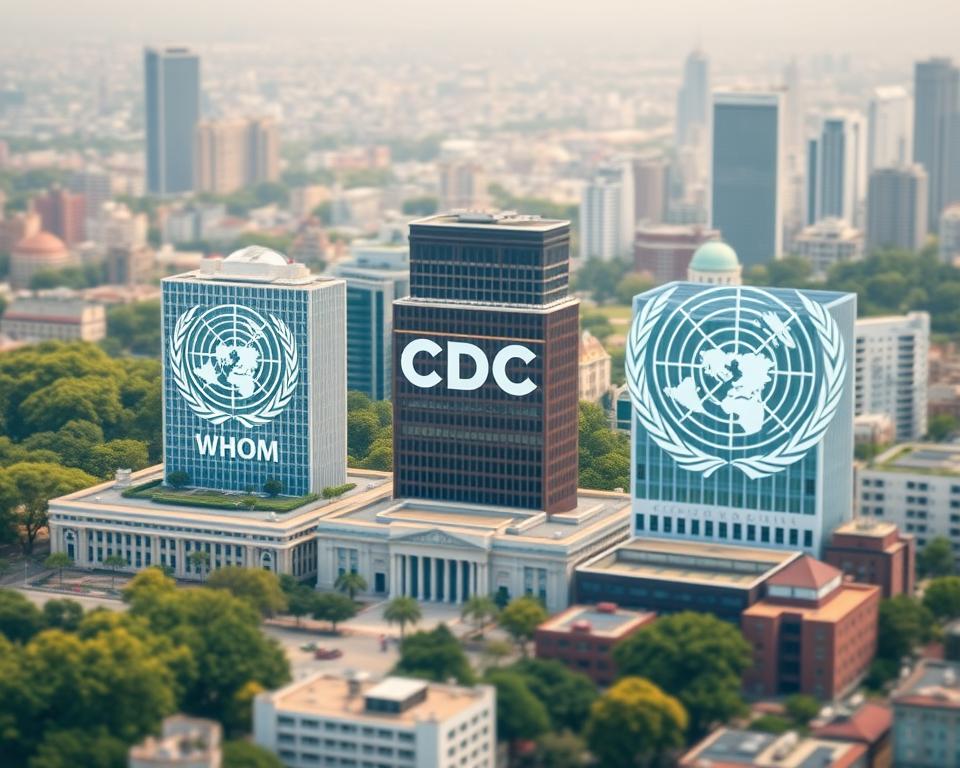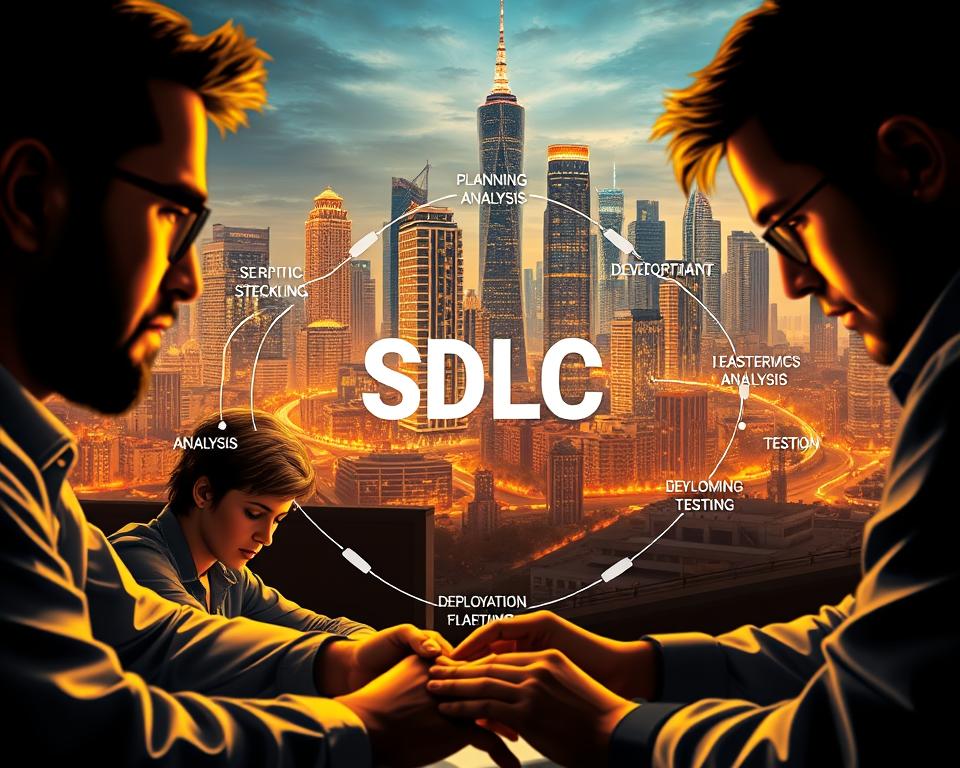
Discover the Best Healthcare NGOs Serving the USA
Did you know that approximately 30 million people in the United States lack health insurance? This staggering number highlights the urgent need for healthcare NGOs in the USA, which play a vital role in bridging the gap in access to health services. These organizations not only provide non-profit healthcare services but also champion the cause of the underserved and underprivileged populations in our communities.
As we delve deeper into the landscape of healthcare in America, we’ll uncover the best healthcare organizations that are dedicated to improving health outcomes. These NGOs tackle pressing issues such as healthcare access, quality of care, and health education, making them essential players in our nation’s healthcare system.

Join us as we explore the impact of these remarkable healthcare NGOs in the USA, shedding light on the difference they make in people’s lives every day.
Key Takeaways
- 30 million Americans remain uninsured, showcasing the need for healthcare NGOs.
- These organizations provide essential services to underserved communities.
- Healthcare NGOs foster health education and advocacy initiatives.
- Collaboration with local resources amplifies their impact.
- Donations and support to these NGOs can enhance healthcare access nationwide.
Introduction to Healthcare NGOs
Healthcare NGOs play a vital role in the United States, bridging the gap between government-provided health services and community health needs. The emergence of these organizations stems from the necessity to address specific public health challenges that often go unmet within traditional frameworks. An effective introduction to healthcare organizations reveals their dedication to supporting vulnerable populations, through innovative approaches tailored to local requirements.
Distinct from governmental organizations, healthcare NGOs prioritize community engagement and the delivery of services suited to grassroots demands. Their flexible structures allow them to adapt swiftly to changing health landscapes. This agility highlights the significant role of NGOs in enhancing healthcare accessibility and ensuring that essential services reach those who need them most. By focusing on the community, these organizations foster both trust and collaboration, paving the way for improved health outcomes.
The Importance of Healthcare NGOs in the USA
Healthcare NGOs play a crucial role in addressing the diverse challenges faced by the American healthcare system. These organizations bridge the gap in healthcare access for vulnerable populations, ensuring that underserved communities receive the medical attention they need. By focusing on preventive care, education, and advocacy, healthcare NGOs significantly enhance the overall community health impact.
Statistics highlight the extent of their impact. For instance, studies reveal that healthcare NGOs have helped improve access for over 20 million individuals. This includes providing essential services such as vaccinations, health screenings, and mental health support. Their initiatives not only reduce disparities but also foster healthier communities that are better equipped to respond to public health crises.
These organizations are instrumental in conducting health education programs, raising awareness about preventive measures, and addressing common health concerns. By filling critical gaps in service delivery, healthcare NGOs demonstrate the profound importance of healthcare NGOs in creating a more equitable healthcare landscape.

Healthcare NGOs in USA
Healthcare NGOs play a crucial role in the landscape of health in the United States. These organizations operate independently of governmental influence and focus primarily on the delivery of various healthcare services. By defining healthcare NGOs in this manner, one can appreciate their flexibility and commitment to meeting the unique needs of different communities across the nation.
Defining Healthcare NGOs
When discussing healthcare NGOs, it is important to recognize their independence and non-profit nature. They strive to provide access to essential health services without the constraints often associated with government policies. This structure allows these organizations to quickly adapt to shifting community needs, ensuring that they can deliver timely and relevant support.
Key Services Provided by Healthcare NGOs
The range of NGO healthcare services is extensive, tailored to address various health-related challenges. Common services provided by NGOs include:
- Primary care services to ensure basic health needs are met.
- Health education initiatives that promote awareness on crucial health topics.
- Mental health services to support emotional well-being.
- Disease prevention strategies that focus on reducing illness incidence.
- Research initiatives aimed at understanding healthcare disparities and improving health outcomes.
This versatility in services enables healthcare NGOs to effectively serve diverse populations, making them invaluable in the pursuit of enhanced public health.
Top Non-Profit Healthcare Organizations in the USA
The landscape of healthcare in the USA is significantly shaped by various top non-profit healthcare organizations. These organizations play a critical role in addressing health disparities, delivering essential services, and leveraging community resources. Noteworthy healthcare NGOs USA include the American Red Cross, Doctors Without Borders, and the United Way, each with unique missions and impactful success stories.
Featured Organizations Making a Difference
Healthcare NGOs in the USA focus on diverse needs within communities. For instance, the American Red Cross offers emergency assistance, disaster relief, and education in health and safety. This organization mobilizes volunteers nationwide to support recovery efforts and prioritizes health services during disasters.
Doctors Without Borders provides high-quality medical care where it is needed most, often in conflict zones and areas affected by natural disasters. Their teams operate on the principle of impartiality, demonstrating the power of compassionate healthcare regardless of political or social boundaries.
The United Way collaborates with various local organizations to tackle community health issues, ensuring access to resources and support for families. Their focus on early childhood education and wellness programs enhances community health and well-being.
How They Operate
Operational models among top non-profit healthcare organizations vary greatly. Most rely on a combination of public and private funding sources, including donations, grants, and government support, to maintain their services. Volunteers form the backbone of these organizations, contributing time and skills that amplify outreach and effectiveness.
Additionally, partnerships with governmental bodies and private entities enhance their operational capacity. This collaborative approach fosters a network of support that extends healthcare resources to underserved communities. By implementing innovative strategies tailored to local needs, these organizations exemplify how operational models can be effectively used to address pressing health challenges.
| Organization | Mission | Key Services | Funding Sources |
|---|---|---|---|
| American Red Cross | Relief in emergencies | Disaster response, health education | Donations, government grants |
| Doctors Without Borders | Impartial medical care | Emergency medical services, vaccinations | Private donations, institutional grants |
| United Way | Community health improvement | Wellness programs, resource allocation | Corporate partnerships, fundraisers |
Charitable Healthcare Organizations: A Lifeline for Communities
Charitable healthcare organizations play a crucial role in providing essential health services to communities facing challenges. These organizations offer vital support during specific health crises, such as natural disasters and systemic healthcare issues. By delivering immediate care, they become a lifeline for those in need.
A major focus of charitable healthcare organizations is their community health support initiatives. These programs aim to address both immediate and long-term health needs. Often, they set up temporary clinics that cater to underserved populations, ensuring access to care where it is most needed.
Healthcare outreach programs are another integral component of these organizations’ missions. They work tirelessly to raise awareness about prevalent health issues and promote preventive care measures. Through educational campaigns, these organizations foster trust within the communities they serve, empowering individuals with knowledge and resources for better health management.
Engagement with the community is essential. Charitable healthcare organizations actively collaborate with local leaders and community members to identify specific health needs and address them effectively. This grassroots approach not only improves access to healthcare but also builds a network of support that uplifts the entire community.
| Type of Support | Examples | Impact |
|---|---|---|
| Medical Services | Free clinics, Mobile health units | Increased access to care for uninsured populations |
| Health Education | Workshops, Health fairs | Improved community awareness of health issues |
| Emergency Response | Disaster relief, Crisis counseling | Rapid support during emergencies can save lives |
Through their dedicated efforts, charitable healthcare organizations are indeed essential for promoting health equity and improving the overall well-being of diverse communities across the nation.
Medical Nonprofits: Bridging Gaps in Healthcare Access
Medical nonprofits play a crucial role in addressing the significant barriers that prevent individuals from obtaining essential healthcare access. These gap bridging organizations often confront challenges related to financial constraints, lack of insurance, and insufficient resources. Through their dedicated initiatives, they strive to ensure that vulnerable populations receive the medical attention they desperately need.
For instance, several medical nonprofits collaborate with community clinics to expand services. These partnerships enable the implementation of mobile healthcare units that travel to underserved areas, offering diagnostic services, vaccinations, and health education. By increasing healthcare access in this way, medical nonprofits help to alleviate the strain on emergency services and reduce health disparities.
In addition, many of these organizations provide support for uninsured individuals through various programs. They often connect patients with essential resources such as free or low-cost medical treatments and prescription drug assistance. Such access is vital for communities where healthcare costs can be prohibitively expensive for many families.
The work of medical nonprofits and other gap bridging organizations emphasizes the importance of compassionate care and community involvement. By finding innovative solutions to the barriers faced by many, they continue to make a meaningful impact on healthcare access across the United States.
How Healthcare Charities in the USA Help
Healthcare charities in the USA play a vital role in enhancing access to essential medical services. Through innovative programs, these organizations provide significant healthcare support to both individuals and communities. Charitable contributions enable funding for necessary treatments, which often alleviates the financial burden on patients.
Many healthcare charities focus on raising awareness around various health issues. Campaigns often target preventive care, encouraging healthy lifestyles, and educating the public about available resources. These initiatives help individuals navigate their healthcare challenges more effectively.
In addition to funding and awareness, healthcare charities offer educational resources that empower communities. Workshops, informational sessions, and resources on managing chronic conditions are ways these charities equip individuals with the knowledge they need for better health outcomes.
Specific initiatives have proven successful in improving community well-being. For instance, collaborations between local healthcare charities and hospitals provide free screenings, vaccinations, and mental health services. These practical solutions help bridge gaps and ensure that help reaches those in need.
Overall, healthcare charities in the USA make an indelible impact. Their commitment to healthcare support strengthens communities, demonstrating that charitable contributions can profoundly change lives.
Understanding NGO Healthcare Services
Healthcare NGOs play a critical role in providing diverse NGO healthcare services that cater to the needs of underprivileged communities. These organizations often offer primary care, emergency services, and health education tailored to local populations. The service understanding among these NGOs allows them to identify specific health issues challenging their communities, leading to targeted interventions that make a tangible difference.
Volunteer involvement enriches these services significantly. Healthcare volunteer work allows passionate individuals to contribute their skills and dedication, enhancing the quality of care delivered. Volunteers are integral to many NGOs, facilitating programs that educate communities about health and wellness while also assisting in direct patient care. These personal interactions not only improve health outcomes but also foster a sense of connection and trust within the community.
Partnerships with local health authorities and other organizations amplify the effectiveness of NGO healthcare services. Collaborative efforts ensure resources are used efficiently, addressing the pressing health concerns specific to each community. This synergy brings together various expertise, maximizing the reach and impact of health initiatives.
Healthcare Foundations: Support Systems for Patients
Healthcare foundations play a crucial role in creating patient support systems that address both medical and financial challenges. These organizations are instrumental in funding healthcare initiatives that enhance patient care and promote medical research. By investing in outreach efforts and patient education, healthcare foundations ensure that individuals facing serious health conditions receive the necessary resources and support to navigate their journeys.
In addition to direct assistance, healthcare foundations advocate for critical changes in health policy. Their campaigns can lead to improved access to care and better support systems for patients, empowering them to take control of their health. Examples of successful programs demonstrate the positive impact of funding healthcare initiatives, enabling patients to access resources that significantly enhance their quality of life.
As society continues to face complex health challenges, the work of healthcare foundations remains vital. They not only provide immediate support but also lay the groundwork for a healthier future through ongoing advocacy and innovation.
Healthcare Nonprofits and Their Impact on Public Health
Healthcare nonprofits play an essential role in enhancing public health. Their initiatives lead to measurable improvements in health outcomes across communities. By effectively addressing various health challenges, these organizations ensure that underserved populations receive critical care. The efficacy of healthcare nonprofits is often demonstrated through compelling statistics and impactful success stories that underscore their contribution to public well-being.
Statistics and Success Stories
Over recent years, numerous studies have highlighted the positive public health impact of healthcare nonprofits. For instance, organizations focused on preventive care have shown a significant decrease in hospitalization rates among vulnerable populations. A report indicated that community-based health initiatives led by nonprofits reduced emergency department visits by up to 30% in certain regions.
Healthcare success stories provide powerful examples of how targeted interventions can transform lives. One such story involves a nonprofit that implemented a mobile health clinic in rural areas. This initiative increased access to primary care and screenings, resulting in early detection of chronic diseases and a marked improvement in patients’ quality of life.
Data collection remains vital in evaluating the effectiveness of these organizations. By gathering and analyzing health outcomes, healthcare nonprofits can refine their strategies and enhance their public health impact. Through continuous assessment, they can ensure that their efforts align with community needs, ultimately driving meaningful change in public health.
Supporting Charitable Healthcare Institutions
Community support plays a crucial role in enhancing the capabilities of charitable healthcare institutions. These organizations rely significantly on the generosity of individuals through charitable donations and volunteer efforts. By offering financial assistance, community members help ensure that these institutions can maintain essential services and expand their reach to underserved populations.
Engaging with non-profit healthcare support can take various forms. Individuals can:
- Make monetary donations, which provide the necessary funds for medical supplies and operational costs.
- Volunteer time, contributing skills and labor to assist with day-to-day operations or special events.
- Advocate for healthcare access and awareness, helping to educate others about the impact of charitable healthcare institutions.
Each action contributes to a strong network of support that elevates healthcare delivery overall. By actively participating in these efforts, individuals not only uplift charitable healthcare institutions but also foster healthier communities.
Ways to Contribute to Healthcare Donation Organizations
Supporting healthcare donation organizations is vital for enhancing community health and wellness. There are numerous ways to contribute, catering to diverse preferences and circumstances. Financial donations remain a significant aspect. Even small amounts can help healthcare NGOs fund essential programs and outreach efforts.
Non-financial contributions are equally impactful. Donating products such as medical supplies or equipment provides direct assistance to healthcare needs. Volunteering time and skills is another meaningful way to get involved. Many healthcare donation organizations rely on volunteers for administrative tasks, event planning, and direct service roles.
Engaging with these organizations not only benefits those in need but also fosters a culture of community support. Encouraging friends and family to join in charitable contributions amplifies the impact even further. The ongoing need for resources ensures that every effort counts.
| Type of Contribution | Description |
|---|---|
| Financial Donations | Direct monetary contributions can support specific programs or general operational costs. |
| Product Donations | Gifts of medical supplies, equipment, or personal care items assist organizations maintaining service standards. |
| Volunteer Work | Offering time and skills enriches organizational efforts and enhances community engagement. |
| Awareness Campaigns | Spreading the word about healthcare donation organizations can drive support and investment. |
No matter how one chooses to contribute, every effort reinforces the crucial work of healthcare NGOs dedicated to serving those in need.
Conclusion
In summary, healthcare NGOs in the USA play a crucial role in enhancing healthcare access improvement and driving better health outcomes for countless individuals. These organizations, whether focused on specific diseases or offering a broad spectrum of services, have proven their value in providing essential care where it’s often lacking. From offering medical assistance to advocacy, their impact is both profound and necessary.
Through exploration of real examples, we’ve seen how these non-profit entities address gaps in the healthcare system, ensuring that underserved communities receive the attention and care they deserve. As we conclude this discussion, it’s essential to recognize the invaluable contributions of healthcare NGOs in USA and consider how our involvement can promote further progress.
Understanding the mission and efforts of these organizations not only amplifies their successes but also encourages community participation. Whether through volunteering, donations, or simply spreading awareness, each of us has the potential to support the vital work being done and contribute to the ongoing journey of healthcare access improvement.






